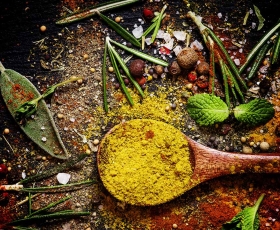In today's conscientious consumer landscape, the need for ethically sourced and also sustainable products has actually surged. Private label food manufacturers have become pioneers in this domain, commonly collaborating with agreement food manufacturers to spearhead sustainability as well as liable sourcing efforts. With a resolute dedication to environmental values, private label brands have made it their goal to deliver sustainable, high-quality options to customers.
Private Label Food Manufacturers
In the last few years, private label food manufacturers, additionally called own brand names or shop brand names, have seen an amazing rise in popularity. These manufacturers create goods marketed under the logo design of a store, grocer, or exclusive entity. What sets private-label items apart is their ability to offer affordable pricing without compromising on quality.
Agreement Food Manufacturers
Lots of private-label food producers sign up with forces with agreement manufacturers to establish their product lines. Agreement food manufacturers are professionals in generating food products for exclusive tags. This tactical partnership enables personal label firms to use the knowledge, sources, as well as dedicated food production facilities of their collaborators.
Sustainability at the Core
Private label food manufacturers use various methods to boost sustainability within their supply networks:
Moral Sourcing:
Private label firms are increasingly committed to sourcing ingredients according to ethical and also fair trade requirements. This involves making sure that producers and also workers of resources, such as coffee beans, seasonings, or cocoa, get fair compensation for their initiatives.
Local Sourcing:
Focusing on neighborhood sourcing of components is one more trademark of private-label food makers. This not only minimizes the carbon footprint associated with transportation however additionally sustains local farmers and communities.


Organic Ingredients:
With the organic food market rising, private tags are reacting by integrating organic ingredients into their product lines. Organic farming practices focus on dirt health while avoiding synthetic chemicals and fertilizers.
Sustainable Seafood:
Private Label Food Manufacturers are persistent in guaranteeing that the seafood they make use of is sustainably harvested, sticking to standards set by organizations like the Marine Stewardship Council, which advertises accountable fishing.
Decreased Food Waste:
Personal label business are actively dealing with lowering food waste by implementing effective manufacturing procedures and also developing products with longer shelf lives. Some brand names are additionally partnering with food rescue companies to donate surplus food to those in requirement.
Eco-Friendly Packaging and Efforts
Sustainability efforts by private-label food producers prolong beyond sourcing components to include packaging and also green initiatives:
Lasting Product packaging:
Exclusive label brands have actually accepted eco-friendly product packaging options, including recyclable, biodegradable, or compostable products. Upgrading product packaging to decrease excess product and reduce ecological impact is a leading concern.
Waste Reduction:
To minimize wastefulness, private-label food manufacturers maximize item dimensions, decrease excess packaging, and also check out innovative packaging solutions. Some brand names also urge clients to participate in recycling programs.
Energy Efficiency:
Lots of exclusive label manufacturers are investing in more energy-efficient production plants, lowering water usage, and also embracing renewable resource sources to additionally decrease their ecological footprint.
Carbon Neutral Initiatives:
Some exclusive brand name food makers are taking enthusiastic steps to accomplish carbon nonpartisanship by countering their greenhouse gas exhausts via reforestation projects and renewable resource credit scores.
Obstacles as well as the Roadway Ahead
In spite of the considerable strides made in sustainability and also accountable sourcing, private-label food makers encounter difficulties. Stabilizing sustainability with cost-effectiveness can be a delicate act, occasionally calling for compromises on sustainable ingredients or the expedition of green options.
Nevertheless, the future of private-label food manufacturing holds wonderful assurance. As consumer recognition and demand for lasting items remain to increase, private-label brands and their agreement food manufacturing partners are most likely to intensify their efforts. Partnership with providers and investment in sustainable technological developments as well as transparency will certainly be critical in shaping a lasting future for the market.
Often Asked Concerns
Q1: What are private label food manufacturers?
Private label food manufacturers produce goods marketed under the logo design of a store, grocer, or private entity. They supply competitively priced products without jeopardizing on quality.
Q2: Just how do private label food manufacturers promote sustainability?
Private label food manufacturers advertise sustainability with moral sourcing, neighborhood active private label food manufacturer ingredient purchase, making use of organic ingredients, lasting fish and shellfish practices, as well as efforts to reduce food waste.
Q3: What environmentally friendly packaging choices do personal label brands utilize?
Exclusive label brand names take on eco-friendly packaging choices such as recyclable, naturally degradable, or compostable products. They likewise redesign product packaging to reduce excess material and lower ecological effect.
Q4: What challenges do private label food manufacturers face in sustainability efforts?
Balancing sustainability with cost-effectiveness is a major challenge for private label food manufacturers. This might need concessions on lasting ingredients or the expedition of environment-friendly alternatives.
Conclusion
Private label food manufacturers go to the leading edge of the sustainability and responsible sourcing movement within the food industry. Their commitment to moral sourcing, local purchase, organic active ingredients, and also lasting methods, in addition to their devotion to environment-friendly product packaging as well as waste reduction initiatives, show their decision to fulfill the demands of today's eco-conscious customers.
Despite the challenges they face, private label food manufacturers are positioned for a promising future. With customers significantly prioritizing sustainability, the market is most likely to witness even greater partnership with providers, investment in sustainable innovations, as well as a commitment to transparency. As we move forward, private label food manufacturers will remain to play an important duty in shaping a much more lasting and ethical food landscape for all.